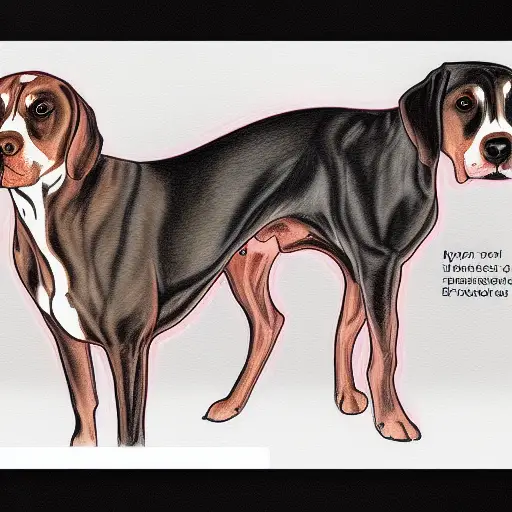Hypothyroidism in dogs can cause a wide variety of symptoms, including skin problems and bald spots. It is important to consult a veterinarian if you suspect your dog may be suffering from this condition. Your vet will first look for a bald spot or bald patches, which are common in this condition. Hypothyroidism in dogs can also result in skin infections, which can result in red, itchy areas. Other symptoms of this condition include incoordination, stiffness and generalised weakness.
Natural solutions for hypothyroid dog skin problems
Hypothyroidism is a common condition in dogs that can cause multiple unpleasant symptoms. The good news is that it is usually not life-threatening and can often be easily treated. Your veterinarian can run blood tests and prescribe specific doses of the manmade hormone levothyroxine, or L-thyroxine.
Dogs with hypothyroidism will often have dry, itchy, and flaky skin. They may also have problems maintaining body temperature, which can lead to frank hypothermia. Another symptom of hypothyroidism is the tendency to lose hair. Hypothyroid dogs will often experience dryness, excessive shedding, and retarded regrowth of hair.
While conventional treatments for hypothyroidism have some drawbacks, holistic approaches offer some unique benefits. Because they address the multifactorial convergence of factors that can affect thyroid health, holistic treatments can help your dog achieve optimal health. A holistic approach will also consider the health of your dog’s gut, liver, and immune system.
There are many herbs and supplements that can help your dog overcome symptoms and get back to optimal functioning. But you should use these only after consulting with a holistic vet or herbalist. You can find a wide variety of herbs that support the thyroid and immune system. But you need to be careful in selecting which herbs to give your dog.
Adaptogenic herbs such as Vet Ashwagandha, Withania Complex, and Poria are beneficial for hypothyroid dogs. These herbal supplements support proper thyroid function and help your dog adapt to stressful situations. The herbs also have anti-inflammatory, anti-stress, and antioxidant properties, so you should consider incorporating these into your pet’s diet.
While most hypothyroid dogs may still be fine with treats and raw food, they should drink only fresh filtered water. Fresh bottled water is a better alternative than tap water. Tap water contains many toxins, such as fungicides and pesticides. Moreover, it is unsafe for pets to drink tap water.
Hypothyroidism in dogs can manifest in many different ways, including the appearance of skin conditions and shedding of hair. A doctor’s diagnosis is usually made based on a thorough physical examination and blood tests to measure thyroid hormone levels. Besides the medication your pet receives, it is important to understand the underlying causes of hypothyroidism so you can provide your dog with the right care.
Treatment for hypothyroidism
If your dog is suffering from skin problems, you may suspect a thyroid disorder. Your veterinarian can diagnose your dog by ordering a thyroid panel and analyzing the results. This can reveal a subtle difference in the dog’s hormone levels, but it is important to note that your dog may still be within the normal range. Your veterinarian can treat your dog’s hypothyroidism using an integrative approach.
Several different treatments are available to treat hypothyroidism, which is a condition characterized by a deficiency in the thyroid hormone. The first treatment option is a medication that contains human-derived hormones that are used during the menopause phase. While it will take several months to bring your dog to a normal thyroid level, this procedure can have many benefits, including improved coat quality.
A full thyroid panel is necessary to confirm a diagnosis of hypothyroidism. This will include total T4, free T4, and TSH. In approximately 30% of cases, thyroid issues lead to mild non-regenerative anemia. Chemistry and urinalysis should be normal. Thyroid panel results should show low levels of free T4 and high levels of thyroid stimulating hormone.
Your veterinarian may perform blood tests to rule out other underlying conditions. If your dog has a high TSH level, he or she might be suffering from another ailment. In addition, you should note that certain medications can cause problems with your dog’s thyroid hormone levels.
Hypothyroidism in dogs can cause hair loss, dryness, and black patches on the skin. This condition can also lead to problems with the heart and nervous systems. Your pet may also suffer from toenail infections, poor muscle tone, and infertility. It can also cause your dog to lose his or her appetite.
Your veterinarian can perform a blood test to determine whether your dog is hypothyroid. He or she will draw blood and perform tests at the clinic or an external laboratory. The blood will reveal several levels of thyroxin, including the main thyroid hormone. If the levels are low, your pet is likely suffering from hypothyroidism.
Hypothyroidism in dogs can affect any organ in the body. The thyroid gland is located in the neck, which produces the hormone thyroxine, which controls the metabolism. When the thyroid produces too much or too little of this hormone, it will affect all organ systems. If your dog has low thyroxine, it will have a slower metabolism and suffer from skin problems. Your veterinarian can treat your dog with medications that can boost its metabolism.
Hypothyroidism is a common condition in dogs. It usually affects medium and large breeds, although it can occur in any breed. Among the most common breeds affected by hypothyroidism are Golden Retrievers, Doberman pinschers, and Labrador Retrievers. In large breeds, the condition can manifest as early as the age of two.
Symptoms of hypothyroidism in dogs
Hypothyroidism in dogs is a common condition that affects the thyroid gland. This gland is an essential part of the body and plays a key role in hormone production. The production of this hormone is usually slower than normal in hypothyroid dogs, and this can affect the way your dog regulates itself and its weight. If left untreated, hypothyroidism in dogs can lead to serious complications.
Hypothyroidism is more common in medium and large breed dogs than in smaller breeds. Dogs with this condition are more likely to be overweight and have an abnormally dull coat. Some dogs that are genetically prone to hypothyroidism include the Doberman pinscher, boxer, Dachshund, and Irish setter.
Hypothyroidism is hard to diagnose, but it can be treated. A veterinarian can do an initial screening test using the T4 concentration in your pet’s blood, as well as further tests to confirm if your dog has this condition. If you suspect your dog of hypothyroidism, your veterinarian can prescribe a medication that replaces the missing thyroxine.
Once you have confirmed your dog has hypothyroidism, the next step is treatment. Medications will help your pup stay healthy and live a longer life. In many cases, hypothyroidism in dogs does not lead to death, but if left untreated, it can lead to a significantly reduced quality of life and reduced activity.
Treatment for hypothyroidism in dogs involves daily oral medication that replaces the missing thyroid hormone. These pills contain the synthetic hormone levothyroxine, which is also known as L-thyroxine. Fortunately, this medication is relatively inexpensive and effective.
Managing your dog’s overall health and ensuring your pet gets the proper nutrients and exercise is essential to preventing hypothyroidism. A regulated diet should be carefully monitored, and you should seek medical attention if your dog has any unusual behavior or is losing weight. Your vet will be able to provide you with specific recommendations based on your pet’s life stage.
Hypothyroidism in dogs is a common problem affecting the thyroid gland, which is located in the neck. The thyroid produces a hormone called thyroxine that regulates the metabolism of your dog. A decreased production of this hormone is the main cause of hypothyroidism.
Fortunately, treatment for hypothyroidism in dogs is relatively inexpensive and can dramatically improve your dog’s quality of life. Your veterinarian may perform blood tests to diagnose the condition, and then prescribe specific doses of the manmade hormone levothyroxine, also known as L-thyroxine.
Hypothyroidism in dogs can be caused by many conditions. Some of the most common causes of this condition are lymphocytic thyroiditis and idiopathic atrophy. In lymphocytic thyroiditis, the immune system attacks the thyroid, causing the gland to stop producing thyroid hormones. This disease is often caused by a fatty tumor on the thyroid gland or in the pituitary gland. Although the causes of hypothyroidism in dogs are not yet fully understood, it can have negative effects on your dog’s quality of life.












